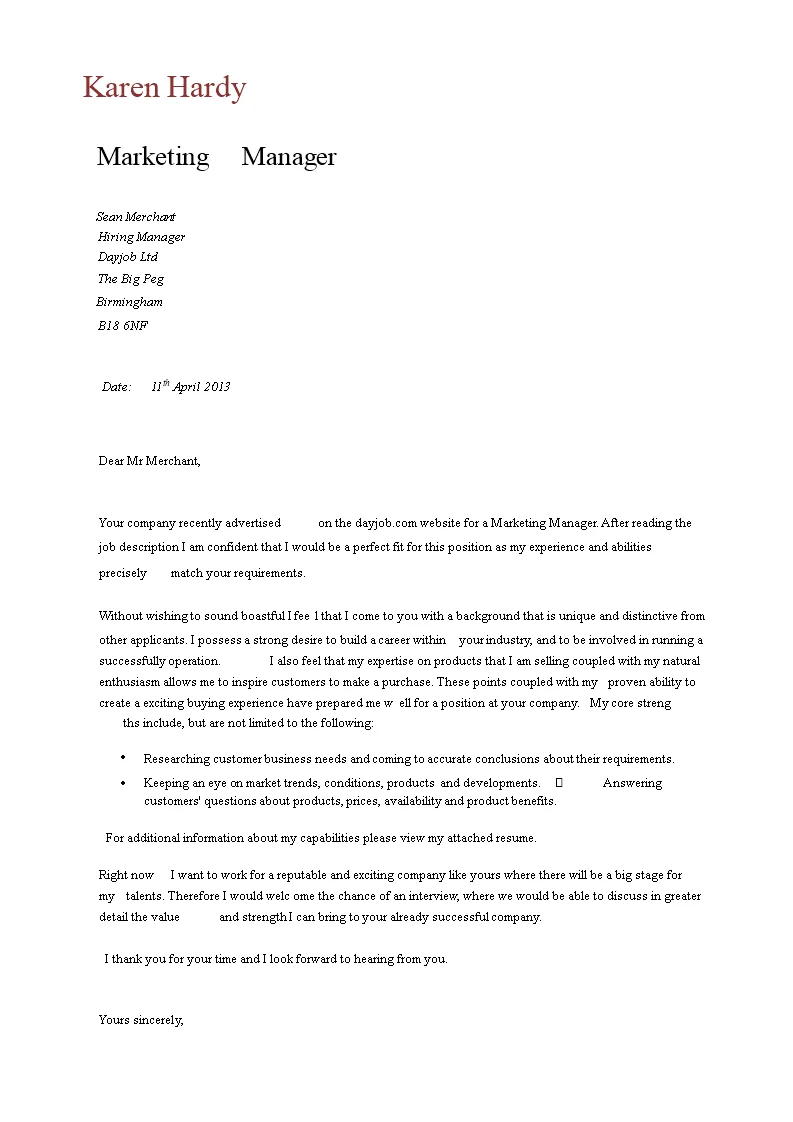Why a Powerful Cover Letter Matters
In the competitive landscape of job applications, a powerful cover letter is not just an optional extra it’s a necessity. While a resume provides a summary of your skills and experience, the cover letter offers the opportunity to showcase your personality, passion, and how your qualifications align with the specific needs of the role and the company. It serves as your personal introduction, giving you the chance to make a strong first impression and distinguish yourself from other applicants. A well-crafted cover letter can significantly increase your chances of securing an interview, demonstrating your genuine interest and enthusiasm for the position. It allows you to address the hiring manager directly, which can make you appear more personable and approachable.
What Managers Look For in a Cover Letter
Hiring managers are looking for specific elements within a cover letter that indicate a candidate’s suitability for a role. They are primarily assessing your communication skills, your understanding of the job requirements, and your cultural fit within the company. Managers examine your letter for evidence that you have thoroughly researched the company and the specific role, demonstrating your genuine interest. They look for examples of your achievements that align with the job’s key responsibilities. Your ability to tailor the cover letter to the specific job and showcase relevant skills and experiences is also a critical aspect. Hiring managers often use cover letters to gauge a candidate’s writing style, attention to detail, and professionalism, looking for clear, concise, and error-free writing.
Highlighting Your Skills and Experience
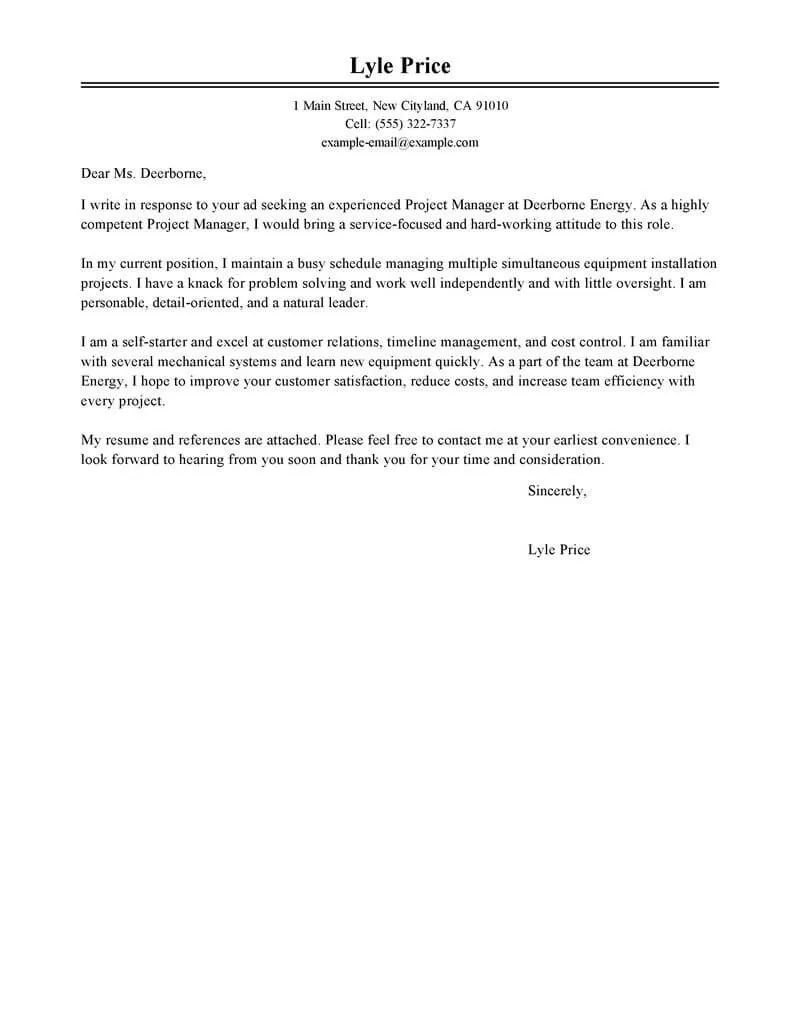
When highlighting your skills and experience, the goal is to connect your qualifications directly to the job requirements. Begin by identifying the key skills and experiences mentioned in the job description. Then, provide specific examples from your professional or academic background that demonstrate how you’ve successfully utilized these skills. Use action verbs to describe your accomplishments and focus on quantifiable results whenever possible. For instance, instead of saying ‘Managed a team,’ state ‘Managed a team of 10, increasing project efficiency by 15%.’ Ensure that your examples align with the role’s core responsibilities, demonstrating that you are not only qualified but also understand what the job entails. This tailored approach will resonate with the hiring manager and make your application stand out.
Tailoring Your Cover Letter to the Job
Generic cover letters rarely impress hiring managers. Tailoring your cover letter to each job is a crucial step. Start by carefully reviewing the job description, paying attention to the specific skills, experiences, and qualifications the employer is seeking. Next, identify the areas where your skills and experience align with these requirements. Use the job description’s keywords throughout your cover letter, and provide specific examples that demonstrate your abilities. Show that you have taken the time to understand the company’s mission, values, and the role’s specific demands. This personalized approach demonstrates your genuine interest and significantly increases your chances of getting noticed. A well-tailored cover letter shows that you are committed to the role and prepared to contribute to the company’s success.
Researching the Company and the Manager
Before writing your cover letter, invest time in researching the company and, if possible, the hiring manager. Understanding the company’s mission, values, recent projects, and industry position allows you to tailor your letter to demonstrate that you are a good fit. Visit the company website, read news articles, and check their social media profiles to gather this information. If possible, research the hiring manager on LinkedIn. Learning about their background and interests can help you personalize your letter, making a stronger connection. Addressing the hiring manager by name and referencing specific company achievements or goals within your letter shows that you’ve done your homework and are genuinely interested in the opportunity. This level of preparation is essential for making a positive impression and standing out from other applicants.
Crafting a Compelling Opening
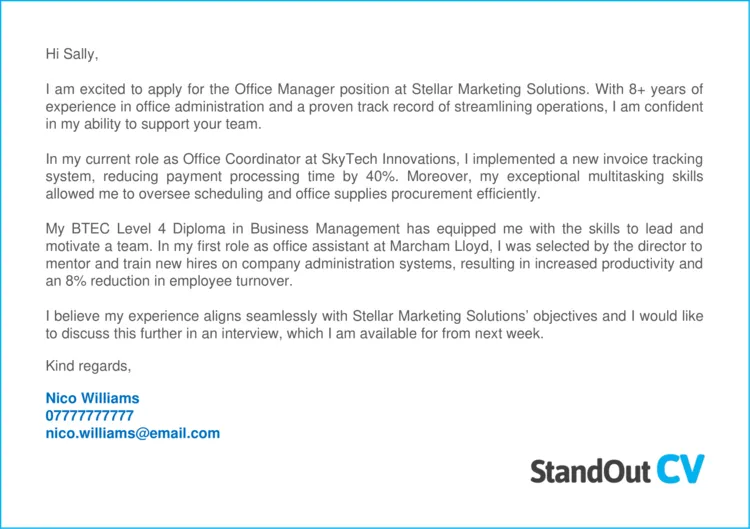
The opening of your cover letter is your first and most crucial opportunity to capture the hiring manager’s attention. Avoid generic openings; instead, aim for a strong, engaging hook. Start by stating the position you are applying for and, if appropriate, where you found the job posting. Immediately follow this with a concise statement of why you are a strong candidate. This could be a notable achievement, a relevant skill, or your enthusiasm for the company. Highlight how your experience aligns with the company’s needs and the role’s responsibilities. Show your unique value and why you are the best fit for the job. A compelling opening should be concise, attention-grabbing, and tailored to the specific job, immediately signaling your interest and qualifications. This initial impression sets the tone for the rest of your letter and encourages the hiring manager to keep reading.
Showcasing Your Accomplishments
Showcasing your accomplishments effectively is vital to making a strong impression. Rather than merely listing job duties, focus on specific achievements that demonstrate your skills and value. Start by identifying your key accomplishments in previous roles, selecting those that align with the requirements of the target job. Use the STAR method (Situation, Task, Action, Result) to structure your examples. Briefly describe the situation you were in, the task you needed to complete, the actions you took, and the positive results you achieved. For instance, instead of saying ‘Managed social media,’ you might write, ‘Managed the company’s social media, increasing follower engagement by 40% and website traffic by 25% through strategic content and targeted advertising.’ This approach provides concrete evidence of your capabilities, showing hiring managers what you can bring to their company.
Quantifying Your Achievements
Quantifying your achievements adds significant impact to your cover letter, making your claims more credible and compelling. Whenever possible, support your accomplishments with measurable data, such as numbers, percentages, or specific dollar amounts. Instead of stating ‘Improved customer satisfaction,’ provide metrics like ‘Increased customer satisfaction scores by 15%.’ Instead of ‘Increased sales,’ specify ‘Increased sales by $50,000 within one quarter.’ Quantifiable results demonstrate the real-world impact you had in previous roles. This data helps hiring managers understand your capabilities and the value you can bring to their company. Precise figures make it easier for them to compare your achievements with other candidates, increasing your chances of securing an interview. By using numbers, you offer tangible proof of your skills and past successes.
Structuring Your Cover Letter for Impact
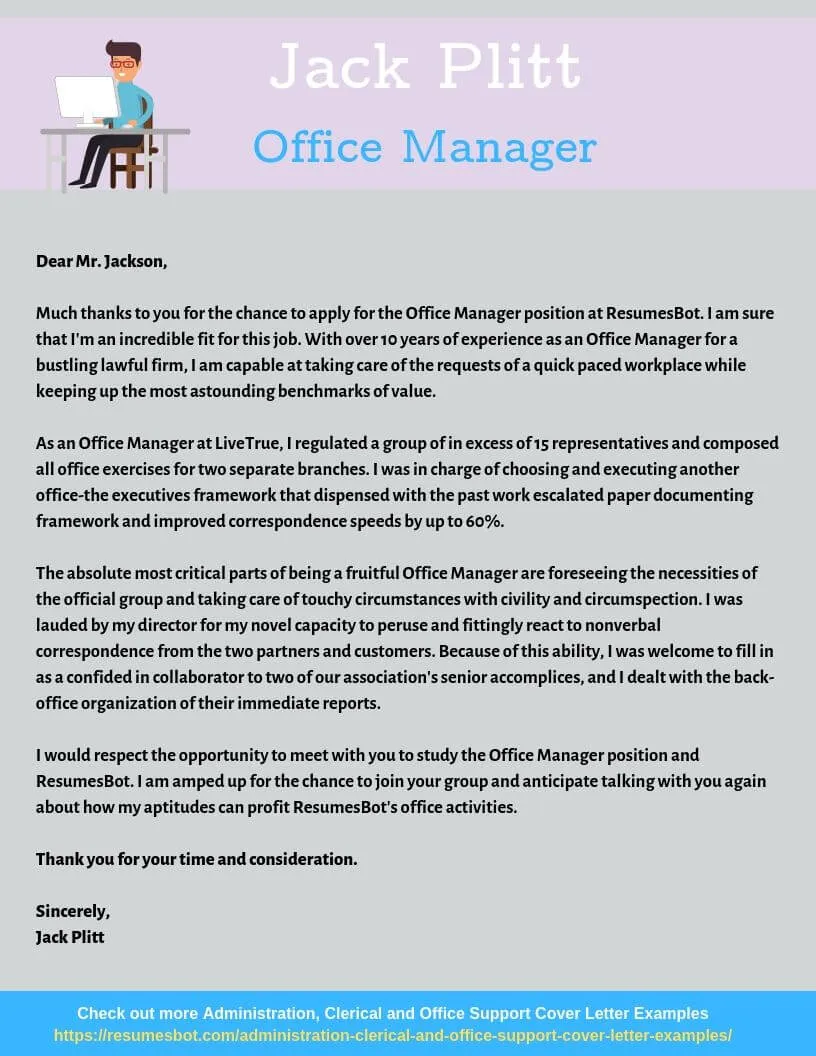
A well-structured cover letter is easy to read and conveys your message effectively. Begin with a professional header that includes your contact information and the date. Then, address the hiring manager by name, if possible. The body of the letter should be concise and divided into clear paragraphs, each focusing on a specific aspect of your qualifications. Start with an engaging opening that states your interest in the role and a brief overview of your relevant experience. In the middle paragraphs, highlight your key skills and accomplishments, providing specific examples to support your claims. Tailor your points to align with the job requirements, and use action verbs to emphasize your contributions. Keep your letter to one page, ensuring it is well-organized and easy to scan. Close with a strong summary of your qualifications and an expression of your interest in an interview.
Formatting Your Cover Letter Professionally
Professional formatting is essential for creating a positive impression. Use a clean, readable font like Arial, Calibri, or Times New Roman, with a font size between 10 and 12 points. Maintain consistent formatting throughout the document, including spacing, margins, and paragraph alignment. Use single spacing within paragraphs and double spacing between paragraphs. Keep the letter concise and ideally limit it to one page. Include a professional header with your contact information and the date, followed by the hiring manager’s name and title. Proofread your letter carefully to eliminate any grammatical errors or typos, as they can undermine your credibility. A well-formatted cover letter demonstrates attention to detail and professionalism, making you appear more polished and qualified.
Writing a Strong Closing
The closing of your cover letter should reiterate your interest in the role and clearly indicate your next steps. Express your enthusiasm for the opportunity and summarize how your skills and experience align with the job requirements. Instead of simply ending your letter, include a call to action, such as stating your availability for an interview and how you can be contacted. Avoid generic phrases; instead, personalize your closing. For example, you can mention a specific aspect of the job or the company that particularly excites you. Thank the hiring manager for their time and consideration, and re-emphasize your interest in the position. A strong closing leaves a lasting impression and encourages the hiring manager to move forward with your application.
Proofreading and Editing Your Cover Letter
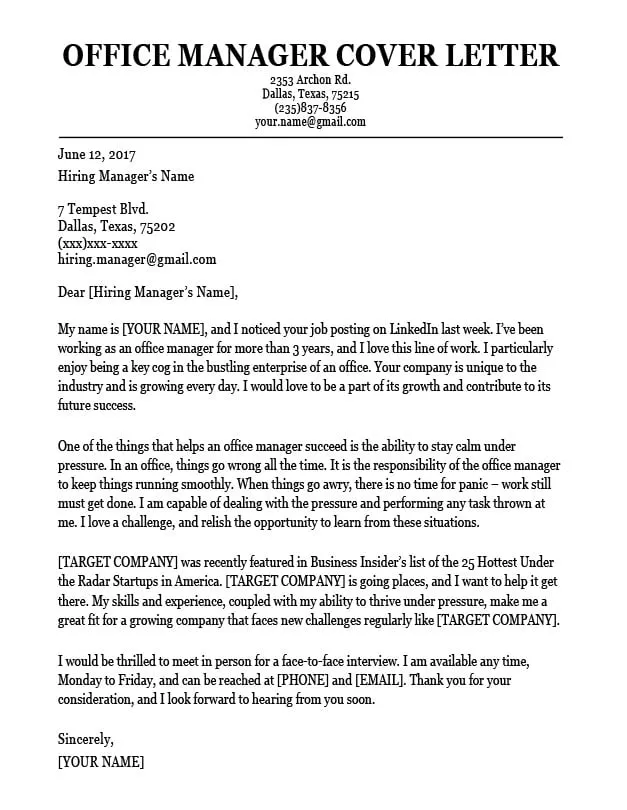
Proofreading and editing your cover letter is a crucial step that can significantly impact your application’s success. Before submitting your letter, carefully review it for any grammatical errors, typos, and formatting inconsistencies. Read the letter multiple times, preferably aloud, to catch any mistakes you might have missed. Consider having a friend, family member, or career counselor review your cover letter for a second opinion, as they may spot errors you overlooked. Ensure that your tone is professional and the language is clear and concise. Check that your contact information is accurate and up-to-date. Thorough proofreading and editing demonstrate attention to detail and reflect positively on your qualifications and professionalism. A polished cover letter can be the deciding factor in getting you an interview.
Cover Letter Examples and Templates
Leveraging cover letter examples and templates can provide guidance and inspiration as you craft your own letter. Many online resources offer a variety of cover letter templates, tailored to different industries and job types. Look for examples that demonstrate effective writing techniques, such as highlighting key skills, quantifying achievements, and tailoring the letter to specific roles. Study how the examples are structured, from the opening to the closing, and how they effectively communicate the candidate’s value. While templates can provide a helpful framework, always customize them to reflect your unique qualifications and the specific requirements of the job. Remember, the best cover letter examples are those that you personalize to showcase your skills and experiences in a way that aligns with the job description and the company’s needs.
Cover Letter Mistakes to Avoid
Certain mistakes can significantly diminish your cover letter’s effectiveness. Avoid generic, impersonal openings that fail to capture the reader’s attention. Refrain from simply restating your resume; the cover letter is your chance to expand on your experiences and demonstrate your personality. Don’t include information that is irrelevant to the job, as this can distract the hiring manager from your key qualifications. Steer clear of typos, grammatical errors, and poor formatting, as these can create a negative impression. Avoid using overly formal or overly casual language, as this can appear unprofessional. Never lie or exaggerate your qualifications; honesty is always the best policy. Instead of focusing on what you want, emphasize how your skills and experience benefit the company. By avoiding these common mistakes, you can ensure that your cover letter makes a positive impression.
Cover Letter for Manager Tips
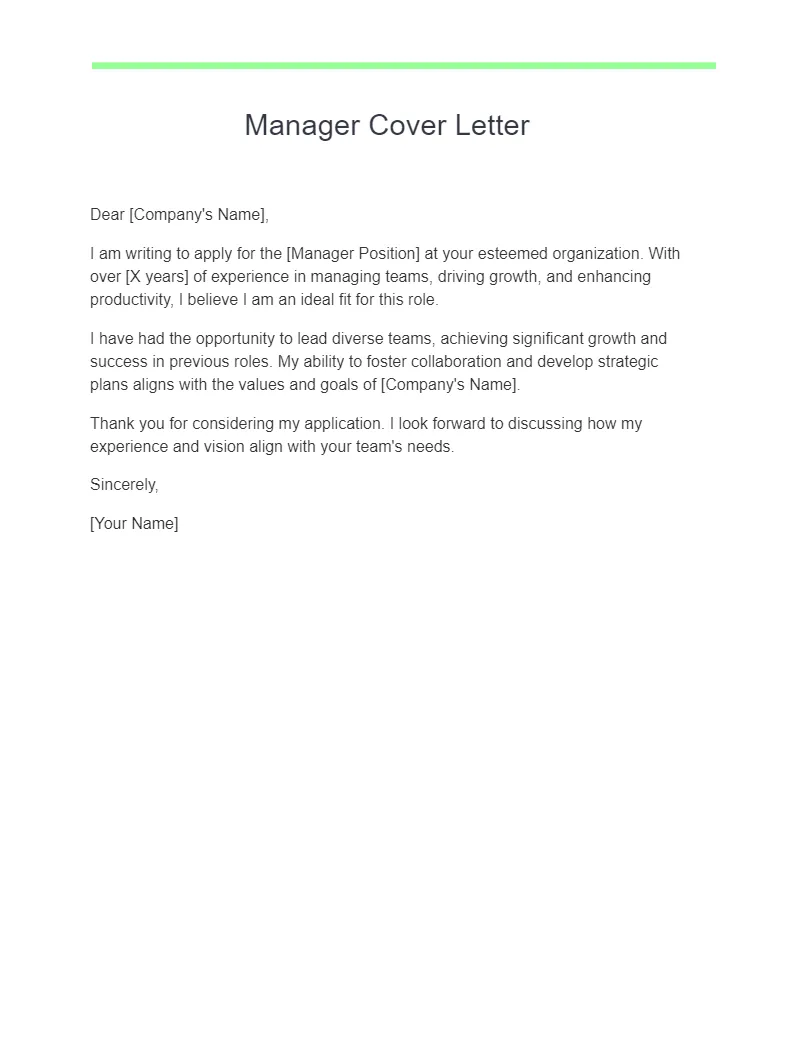
Writing a cover letter for a management position requires a strategic approach to highlight your leadership skills and experience. Focus on your accomplishments in previous management roles, emphasizing how you have successfully led teams, achieved business objectives, and improved operational efficiency. Quantify your achievements whenever possible, using metrics to demonstrate your impact. Tailor your cover letter to the specific requirements of the management role, emphasizing your ability to motivate teams, make strategic decisions, and manage projects effectively. Research the company and the hiring manager to show that you understand their needs and are a good cultural fit. Showcase your leadership style and explain how you will contribute to the company’s success. Provide examples of your problem-solving skills and how you have navigated challenges in past leadership positions. Ensure your letter conveys confidence, professionalism, and a clear understanding of what the role entails.
Cover Letter for Manager Example
To illustrate, let’s consider a hypothetical cover letter for a Marketing Manager position. The opening might say, “Dear [Hiring Manager name], I am writing to express my enthusiastic interest in the Marketing Manager position at [Company Name], as advertised on [Platform]. With over seven years of experience leading marketing initiatives that have driven significant revenue growth, I am confident I possess the skills and vision to excel in this role.” In the body, the candidate can describe how they increased website traffic by 30%, led a team of five marketers, and launched a successful product campaign. The letter should then explain how the candidate’s experience in market research, budget management, and content strategy aligns with the job requirements. The closing could include, “I am eager to discuss my qualifications further and how I can contribute to [Company Name]’s continued success. Thank you for your time and consideration. I look forward to hearing from you soon.” The entire letter should be tailored, concise, and compelling, showcasing the candidate’s leadership experience and strategic thinking.
